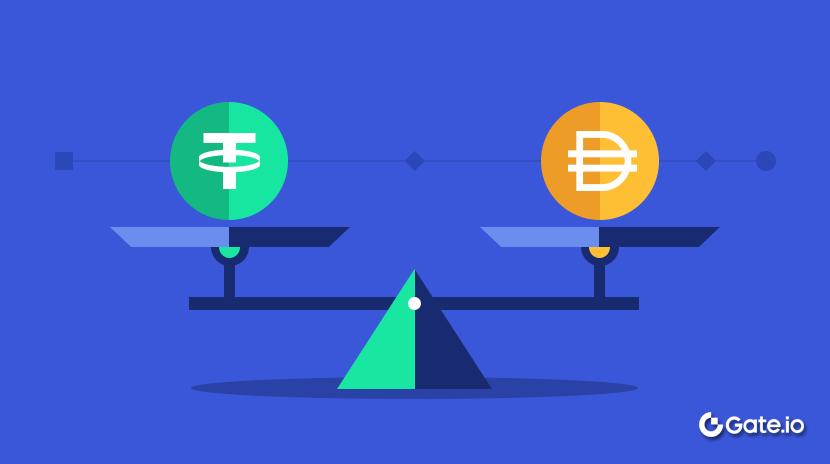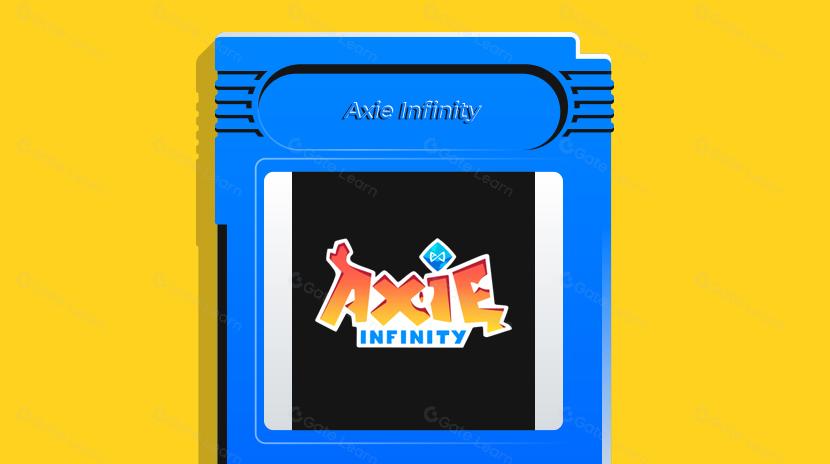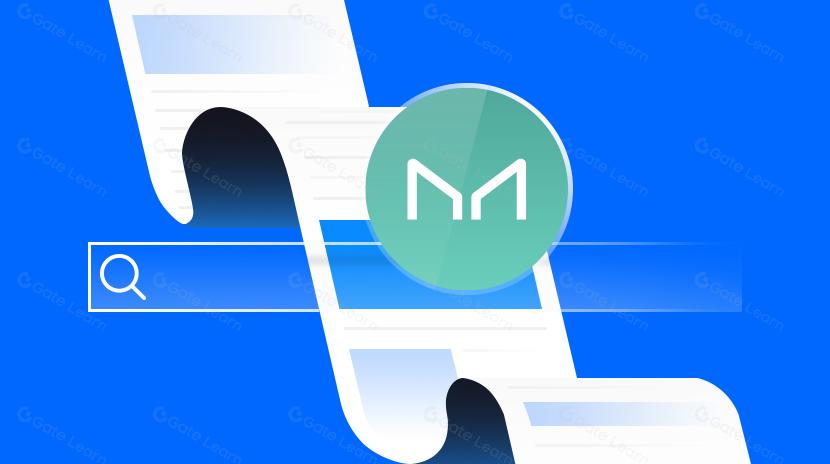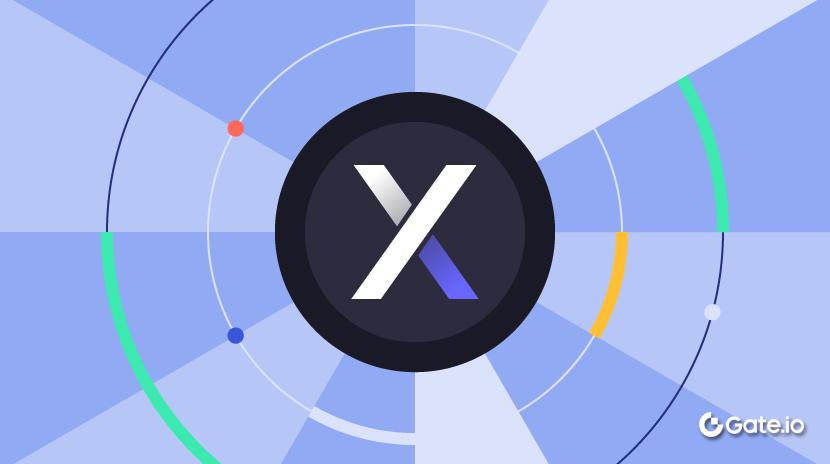Chronicle tham gia cuộc đua Oracle với sự tập trung vào DeFi và RWAs
Ban đầu được ra mắt trong hệ sinh thái SKY, Chronicle nhanh chóng trở thành một nhà cung cấp quan trọng trong không gian Oracle. Với kiến trúc Scribe độc đáo và các hiệp hội mạnh mẽ, nó tách biệt số lượng máy chủ từ chi phí gas. Điều này nâng cao tính phân quyền, bảo mật và khả năng mở rộng của nó. Hiện nay, Chronicle xếp hạng thứ hai về cung cấp Oracle lớn thứ hai theo Giá Trị Tổng cộng Đảm bảo (TVS), giữ 17% thị phần.Trong những năm gần đây, Tài sản Thế giới Thực (RWAs) đã trải qua sự phát triển nhanh chóng và biến đổi. Bằng cách tạo mã hóa cho những tài sản thông thường không lỏng, như bất động sản, nghệ thuật tinh tế, trái phiếu chính phủ và cổ phiếu, RWAs đang làm dần bớt khoảng cách giữa tài chính truyền thống và thế giới đang nổi của tài chính phi tập trung (DeFi). Sự tích hợp này không chỉ nâng cao tính thanh khoản, tính minh bạch và sự tiếp cận mà còn mở ra những con đường mới cho sự đổi mới tài chính. Một báo cáo chung của Boston Consulting Group và ADDX dự đoán rằng thị trường cho tài sản không lỏng hóa có thể đạt 16 nghìn tỷ đô la vào năm 2030.
Oracles đóng vai trò quan trọng trong việc tạo mã hóa tài sản ngoại chuỗi. Chúng có nguồn dữ liệu bên ngoài và chuyển giao nó vào chuỗi. Điều này cho phép hợp đồng thông minh hoạt động một cách minh bạch và tự động. Vào cuối tháng Ba, Chronicle—một mạng lưới oracle phát triển từ hệ sinh thái MakerDAO (hiện tại là Sky)—đã hoàn thành vòng gọi vốn hạt giống trị giá 12 triệu đô la. Với hơn 10,2 tỷ đô la trong Tổng Giá Trị Bảo đảm (TVS), Chronicle hiện là nhà cung cấp oracle lớn thứ hai trong ngành, thu hút sự chú ý của thị trường một lần nữa.
Bài viết này sẽ đào sâu vào hành trình phát triển của Chronicle, bao gồm đội ngũ, kiến trúc kỹ thuật, sự phát triển của hệ sinh thái và lộ trình, và làm sáng tỏ tiềm năng dài hạn của nó.
Chronicle là gì?
Với sự tập trung mạnh mẽ vào DeFi và Real-World Assets (RWA), Chronicle là một cơ sở hạ tầng oracles phi tập trung được thiết kế để cung cấp việc truyền dữ liệu mượt mà, có thể xác minh trên các chuỗi khối.

Nguồn:@ChronicleLabs
Chronicle là bộ mạng lưới thông tin đầu tiên được ra mắt trên Ethereum và hiện đã hỗ trợ một danh sách ngày càng phát triển các hệ sinh thái, bao gồm Arbitrum, Mantle, Scroll và Berachain. Đến ngày 8 tháng 4, Chronicle báo cáo hơn 10,2 tỷ đô la Mỹ về TVS và vận hành 1.296 oracles. Dựa trên TVS một mình, Chronicle nắm giữ 17% thị phần, xếp thứ hai trong số các nhà cung cấp Oracle. Nó đã hợp tác với các giao protocô nổi tiếng như MakerDAO, Spark và Morpho.

Nguồn: defillama.com
Chronicle đã tiên phong trong việc phát triển kiến trúc Scribe, một framework Oracle mới sử dụng việc tổng hợp chữ ký Schnorr để giảm chi phí dữ liệu trên chuỗi rất đáng kể. Bằng cách tách biệt số lượng người xác minh từ phí gas, Scribe giảm chi phí gas Oracle L1 hơn 60% và chi phí L2 hơn 68%.
Chronicle vẫn chưa ra mắt token, nhưng người dùng hiện tại có thể kiếm được Điểm Chronicle thông qua việc tham gia các hoạt động trong hệ sinh thái SKY. Những Điểm này dự kiến sẽ có thể quy đổi thành token Chronicle vào một thời điểm sau này.
Lịch sử đội ngũ & Quỹ
Chronicle không phải là một cái tên mới trên cảnh quan Oracle; đó là một dự án đã được khẳng định được ra mắt vào năm 2017. Ban đầu, đó là mô-đun Oracle cho MakerDAO và chỉ được sử dụng trong hệ sinh thái MakerDAO để hỗ trợ SAI, tiền thân của DAI.
Trong năm 2022, người sáng lập MakerDAO Rune Christensen đã đề xuất kế hoạch “Endgame”—một tầm nhìn để phát triển MakerDAO thông qua kiến trúc modular, quản trị phi tập trung và tích hợp RWA (Tài sản Thế giới Thực). Sự chuyển đổi chiến lược này đã mở ra cơ hội cho Chronicle phát triển. Đến năm 2023, Chronicle Labs chính thức được thành lập, và Chronicle trở thành một tổ chức độc lập, mở rộng dịch vụ dữ liệu của mình vượt ra ngoài MakerDAO. Đến nay, nó đã xử lý hơn 22 tỷ đô la giá trị tổng cộng được bảo đảm (TVS).
Sinh ra từ hệ sinh thái MakerDAO, đội ngũ lãnh đạo của Chronicle chủ yếu đến từ cùng một nguồn gốc. Người sáng lập Niklas Kunkel là một trong những người đóng góp cốt lõi ban đầu cho MakerDAO và trước đây đã dẫn đầu phát triển backend và oracle. Anh đã dẫn đầu các dự án như OasisDEX và DSProxy. Jen Senhaji, người dẫn đầu phát triển, cũng đã phục vụ trong vai trò phát triển kinh doanh tại MakerDAO.
Vào ngày 25 tháng 3, Chronicle đã hoàn thành vòng gọi vốn hạt giống 12 triệu USD do Strobe Ventures (trước đây là BlockTower Capital) dẫn đầu. Các nhà đầu tư đáng chú ý khác bao gồm Galaxy Vision Hill, Brevan Howard Digital, Tioga Capital và Fenbushi Capital. Các nhà đầu tư thiên tài, bao gồm Rune Christensen (Sky/MakerDAO), Andre Cronje (Sonic, Yearn), Stani Kulechov (Aave) và Mark Phillips (Steakhouse), cũng đã tham gia.
Báo cáo cho biết rằng nguồn tài trợ mới sẽ tăng tốc phát triển sản phẩm, đẩy sâu hơn vào các đối tác chiến lược, và tăng cường nỗ lực tuân thủ, củng cố vị thế của nó như một chiếc cầu quan trọng giữa tài chính truyền thống và tài sản số.
Kiến trúc & Tính năng Core
Chronicle nhằm mục tiêu cung cấp xác thực dữ liệu theo thời gian thực cho các sản phẩm tài chính được mã hóa và đang tích cực xây dựng cơ sở hạ tầng dành riêng cho việc áp dụng quy mô cấp tổ chức. Để tạo ra một mạng lưới phi tập trung, an toàn, có khả năng mở rộng và phi tập trung chi phí, Chronicle nhấn mạnh vào những tính năng cốt lõi sau:
1) Mạng Validator: Hoàn toàn được cộng đồng điều khiển
Chronicle hiện đang hoạt động với 25 nút xác minh, bao gồm các đối tác đã được công nhận như Infura, Etherscan, Gnosis, Gitcoin, Mantle và MakerDAO. Cấu trúc này, được hỗ trợ bởi các đối tác uy tín hàng đầu trong ngành, xây dựng niềm tin của cộng đồng trong khi loại bỏ các điểm thất bại đơn lẻ, từ đó tăng cường bảo mật và minh bạch của mạng lưới. Ngoài ra, hệ thống còn cho phép bất kỳ người dùng nào trở thành một người giám sát bằng cách gửi bằng chứng lừa đảo, từ đó có thể tự động vô hiệu hóa các nút xác minh độc hại.

Nguồn: chroniclelabs.org
2) Scribe: Một Kiến trúc Oracle Thế hệ Tiếp theo Xây dựng trên Schnorr Multisig
Không giống như các khung Oracle truyền thống, Scribe của Chronicle giới thiệu hai đổi mới chính:
- Đạt được sự cân bằng giữa bảo mật, phân cấp và hiệu quả về chi phí
Trước khi có Scribe, các nhà môi giới blockchain dựa vào ECDSA (Thuật toán Chữ ký số đường cong Elliptic), trong đó mỗi người xác minh độc lập ký các thông điệp, dẫn đến mối quan hệ một-một. Mặc dù điều này đảm bảo an ninh và phân tán, nhưng cũng có nghĩa là việc tăng số lượng người xác minh đáng kể tăng chi phí đồng bộ hóa và cập nhật dữ liệu trên chuỗi.
Để vượt qua hạn chế này, Chronicle đã xây dựng một kiến trúc mới mẻ giải cặp số lượng người xác minh từ chi phí gas trên chuỗi. Scribe cho phép tập hợp người xác minh lớn trong khi vẫn giữ thấp cập nhật dữ liệu và chi phí trên chuỗi. Cụ thể, Scribe sử dụng mật mã Schnorr để tổng hợp các chữ ký và khóa vào một “chữ ký siêu phức tạp,” sau đó được xác thực bằng ECDSA.
Hệ thống chữ ký nhiều vào một này nén dữ liệu theo quy mô. Nó giảm thiểu những gì cần được truyền tải đến hợp đồng thông minh Oracle. Kết quả là, chi phí gas cho các cập nhật vẫn giữ ở mức gần như không đổi, không phụ thuộc vào số lượng người xác thực. Theo báo cáo của Messari, trong Q4 của năm ngoái, chi phí gas trung bình cho mỗi cập nhật của Chronicle là 4,80 đô la, so với 12,27 đô la của Chainlink — một giảm chi phí là 60,9%.
- Tính toàn vẹn dữ liệu có thể xác minh
Chronicle cung cấp cho người dùng các công cụ cốt lõi để cho phép việc xác thực ở mọi cấp độ. Bất kỳ ai cũng có thể theo dõi dữ liệu từ đầu đến cuối và xác minh mật mã chữ ký của từng người xác minh và các chữ ký dựa trên Schnorr đẩy giá trị trên chuỗi.

Nguồn: chroniclelabs.org
3) Trải nghiệm phát triển cắm và chạy
Kiến trúc của Chronicle được thiết kế với những nhà phát triển trong tâm trí. Nó cung cấp một giao diện đơn, thống nhất cho việc tích hợp cross-chain một cách mượt mà, cho phép triển khai chỉ trong vài phút. Hiện tại, Chronicle hỗ trợ 14 mạng blockchain, bao gồm Ethereum, Arbitrum, Mantle, zkSync, và Base.
Sản Phẩm Cốt Lõi
Chronicle tập trung vào việc cung cấp cơ sở hạ tầng dữ liệu cho các lĩnh vực DeFi và RWA. Đối với các giao thức DeFi, Chronicle cung cấp các loại dữ liệu chính bao gồm giá tài sản tiền điện tử, tỷ giá hối đoái fiat và lợi suất đầu tư. Nó áp dụng mô hình đẩy để cung cấp cập nhật giá thời gian thực theo phút hoặc theo giờ, hoặc bất cứ khi nào biến động giá vượt quá ngưỡng được xác định trước.
Trong lĩnh vực RWA (Tài sản thế giới thực), Chronicle đã phát triển một sản phẩm Oracle độc quyền mang tên Verified Asset. Xây dựng trên giao thức Chronicle, Oracle này xác minh một cách an toàn và minh bạch tính nguyên vẹn và chất lượng của tài sản ngoại chuỗi, như bất động sản, tác phẩm nghệ thuật, vàng, cũng như các công cụ tài chính như trái phiếu chính phủ và cổ phiếu, truyền dữ liệu kết quả trên chuỗi, và cung cấp trực tiếp cho hợp đồng thông minh và ứng dụng dựa trên blockchain. Verified Asset hiện đang hỗ trợ các đối tác chính bao gồm M^0, nền tảng tokenization Centrifuge, và giao thức đầu tư trên chuỗi Superstate.

Nguồn: chroniclelabs.org/blog
Lấy M^0 làm ví dụ. Đây là một cơ sở hạ tầng phi tập trung cho phép các tổ chức phát hành stablecoin và tài sản tiền điện tử khác. Thông qua sự hợp tác này, Chronicle xác minh sự tồn tại và định giá tài sản đảm bảo của người phát hành (như các hóa đơn Trésor Mỹ ngắn hạn). Khi xác minh hoàn tất, Chronicle tạo ra một chữ ký số có thể xác minh xác định số lượng chính xác của token mà người phát hành có thể đúc ra.
Phát triển hệ sinh thái & Cơ hội khích lệ
Để phát triển hệ sinh thái của mình, Chronicle đã triển khai nhiều chương trình khuyến khích, bao gồm chương trình đại sứ cộng đồng, chương trình thưởng lỗi, và các cuộc thi hackathon. Các chương trình này cung cấp hỗ trợ toàn diện cho người tham gia—tài chính, kỹ thuật, và vận hành.
Vào giữa tháng Chín năm ngoái, Chronicle đã hợp tác với SKY để ra mắt chương trình Điểm nhằm tăng cường sự tương tác cộng đồng. Người dùng có thể đặt cược USDS (một stablecoin của giao protocole SKY, được coi là phiên bản nâng cấp của DAI) trên ba nền tảng - Sky.Money, Spark và Summer Fi - để kiếm điểm Chronicle, sau đó có thể đổi điểm đó thành tỷ lệ 10 điểm = 1 token CLE. Tổng cung cấp của token CLE được giới hạn tại 10 tỷ, với 3,75 tỷ Điểm Chronicle được phát hành hàng năm.
Đến ngày 10 tháng 3, Sky.Money cho thấy một mình đã có hơn 21,5 triệu đô la giá trị USDS đã đặt cược, với hơn 2,098 tỷ Điểm tích lũy.

Nguồn: info.sky.money
Những nỗ lực hợp tác này làm nổi bật mối quan hệ chặt chẽ giữa Chronicle và SKY. Sự sắp xếp chiến lược này cung cấp cho Chronicle sự am hiểu sâu sắc về DeFi của SKY, kinh nghiệm vận hành và tài nguyên hệ sinh thái. Nó mang lại đà tăng đáng kể cho sự phát triển dài hạn của họ.
Ngoài ra, Chronicle tiếp tục mở rộng mạng lưới của mình và đã hợp tác mạnh mẽ với các đối tác nổi tiếng trong ngành, bao gồm BadgerDAO, Lido, Circle, Dolomite, Euler, Coinbase và Gnosis Pay.
Lộ trình & Tiềm năng Thách thức
Chronicle chưa công bố một lộ trình chi tiết, nhưng các tuyên bố từ các thành viên nhóm cho thấy việc phát triển sản phẩm là ưu tiên hàng đầu trong năm nay, với một loạt các tính năng mới được dự kiến sẽ ra mắt sớm. Trong thông báo về quỹ gần đây, nhóm cũng nhấn mạnh việc mở rộng đối tác và nâng cao các biện pháp tuân thủ.
Tuy nói vậy, để duy trì vị trí dẫn đầu trong lĩnh vực Oracle, Chronicle phải vượt qua một số thách thức quan trọng tại Gate.com:
- Hiện tại, Chronicle đang vận hành mạng lưới 25 bộ xác minh được chọn dựa trên uy tín (bao gồm Infura, Etherscan, Gnosis và những nơi khác) và sử dụng cơ chế chứng minh gian lận để tăng cường tính phân quyền, nhưng nhóm phát triển chưa công khai tiêu chí lựa chọn hoặc cấu trúc động viên. Quy trình quản trị cũng thiếu kế hoạch cụ thể, điều này có thể gây ra lo ngại về tính phân quyền và tính minh bạch.
- Là một cầu nối quan trọng giữa giá trị số và thực tế, Oracles thường là mục tiêu thường xuyên của các cuộc tấn công như khai thác vay nhanh. Chronicle sẽ cần liên tục phát triển chiến lược bảo mật đa tầng của mình để bảo vệ nguồn dữ liệu, logic xác thực và cơ sở hạ tầng ký.
- Với việc xử lý dữ liệu tài chính nhạy cảm, Chronicle phải ưu tiên bảo vệ quyền riêng tư. Mặc dù nền tảng đã tích hợp các công nghệ chứng minh không-tri thức (ZKP) để bảo vệ ẩn danh người dùng mà không cần hy sinh tính xác thực, phạm vi các loại dữ liệu và logic xác thực được hỗ trợ vẫn còn hạn chế và cần phải có thêm sự đổi mới.
- Quá trình tokenization quy mô lớn của RWAs đưa ra sự phức tạp về pháp lý và quy định, bao gồm luật chứng khoán và giám sát tài chính, đặt ra yêu cầu tuân thủ lớn hơn đối với Chronicle. Mặc dù sự quan tâm ngày càng tăng từ các cơ quan quản lý như SEC trong việc khám phá các khung hạ tầng tài sản tokenized tuân thủ, nhưng tiêu chuẩn pháp lý cụ thể vẫn chưa được giải quyết. Do đó, Chronicle phải duy trì sự linh hoạt và nhanh nhẹn đối với các yêu cầu phát triển, bao gồm tiêu chuẩn kiểm toán, tần suất cập nhật và các thực hành tiết lộ dữ liệu.
Kết luận
Chronicle nảy sinh từ hệ sinh thái SKY, tận dụng sự kết hợp sâu sắc của nó để xây dựng một vị trí vững chắc trong cảnh quan Oracle. Kiến trúc Scribe mới lạ của nó, tách rời số lượng người xác minh từ chi phí khí, đã mở khóa sự phân quyền lớn hơn, khả năng mở rộng và hiệu suất vận hành.
Mặc dù Chronicle đã đạt được các mốc quan trọng, với TVS hiện vượt quá 10 tỷ đô la, nhưng vẫn đối mặt với những thách thức đáng kể về phát triển công nghệ, quản trị validator, động lực cộng đồng và mở rộng hệ sinh thái. Sự thành công tiếp tục sẽ đòi hỏi sự kiên trì, tập trung chiến lược và thực thi có kỷ luật.
Bài viết liên quan

Stablecoin là gì?

Mọi thứ bạn cần biết về Blockchain

Thanh khoản Farming là gì?

Axie Infinity là gì?

MakerDAO: DAPP "điên rồ nhất" của Ethereum


